Engineering > QUESTIONS & ANSWERS > Automotive Chapter 10 Questions and Answers Rated A (All)
Automotive Chapter 10 Questions and Answers Rated A
Document Content and Description Below
Automotive Chapter 10 Questions and Answers Rated A Vehicle fluids ✔✔Engine oil, coolant, brake fluid, transmission fluid, power steering fluid, and other liquids Lubrication service ✔✔1. ... Checking fluid levels and conditions 2. Adding fluids as needed 3. Changing engine oil and filter 4. Changing automatic transmission fluid 5. Lubricating (greasing) certain chassis parts 6. Locating fluid leaks and other obvious problems 7. Following state regulations for recycling and disposal of fluids. Vehicle maintenance ✔✔Includes any operation that will keep a vehicle in good operating condition Oil foaming ✔✔1. Oil absorbs air bubbles 2. Caused by overfilling the engine oil 3. Reduces the oil's lubricating ability Stripped oil drain plug ✔✔Can damage the oil pan threads Grease job ✔✔Lubricate high-friction pivot points on the suspension, steering, and drive train systems. Grease gun ✔✔Used to force lubricant (chassis grease) into small fittings. Engine oil ✔✔Used on hard-to-reach high-friction points Graphite ✔✔Excellent for door and trunk locks. It will not collect dust and dirt, which could upset lock operations. Dry stick (wax) lubricant ✔✔Desirable on door latches and strikers (post that engages the door latch). It will not stain clothing Chassis grease ✔✔Good all around body lubricant. It can be used on easy-to-reach hinges and latches Silicone lubricant ✔✔Often comes in a spray can. It is especially suited for rubber door weather stripping and windows. It is a dry lubricant that will not soil windows and clothing Service interval ✔✔The amount of time (in months) or the number of miles between recommended service checks or maintenance operations. Hose inspection ✔✔1. Includes checking for hardening, softening, cracking, splitting, or other signs of impeding failure. 2. Squeeze all the hoses. 3. If the hoses are deteriorating (hard or soft), inform the customer or shop supervisor of the problem Drive belt inspection ✔✔1. Includes looking for splitting, tears, cuts and wear. 2. If worn or loose, the belt ma slip and squeal Wiring inspection ✔✔1. Involves looking for improper routing, cracked or brittle insulation, or other obvious problem signs. 2. Make sure wires are away from all moving or hot parts. Tire inspection ✔✔1. Done by looking for excessive wear, improper inflation, or physical damage. 2. This is very important from a safety standpoint Steering system inspection ✔✔1. Includes checking for excessive wear and play in moving parts. 2. The steering wheel should not move more than about an inch (25mm) without causing front wheel movement. 3. If it does, wear in the steering mechanism is indicated. Exhaust system inspection ✔✔1. Involves looking for damaged, rusted, or leaking parts. 2. The exhaust system should be inspected any time a vehicle is raised on a lift. 3. Poisonous exhaust fumes make a leaking exhaust system very dangerous. 4. Look for rust holes in the pipes, muffler, and other parts. Fluid leaks ✔✔Result from bad gaskets, seals or hoses, cracks in parts, and similar troubles Stop-leak products ✔✔Designed to recondition the leaking seal [Show More]
Last updated: 2 years ago
Preview 1 out of 5 pages
.png)
Buy this document to get the full access instantly
Instant Download Access after purchase
Buy NowInstant download
We Accept:

Also available in bundle (1)
.png)
Automotive Bundled Exams [Chapter 1-10] Questions and Answers with Certified Solutions
Automotive Bundled Exams [Chapter 1-10] Questions and Answers with Certified Solutions
By Nutmegs 2 years ago
$20
13
Reviews( 0 )
$8.00
Can't find what you want? Try our AI powered Search
Document information
Connected school, study & course
About the document
Uploaded On
Feb 15, 2023
Number of pages
5
Written in
Additional information
This document has been written for:
Uploaded
Feb 15, 2023
Downloads
0
Views
133


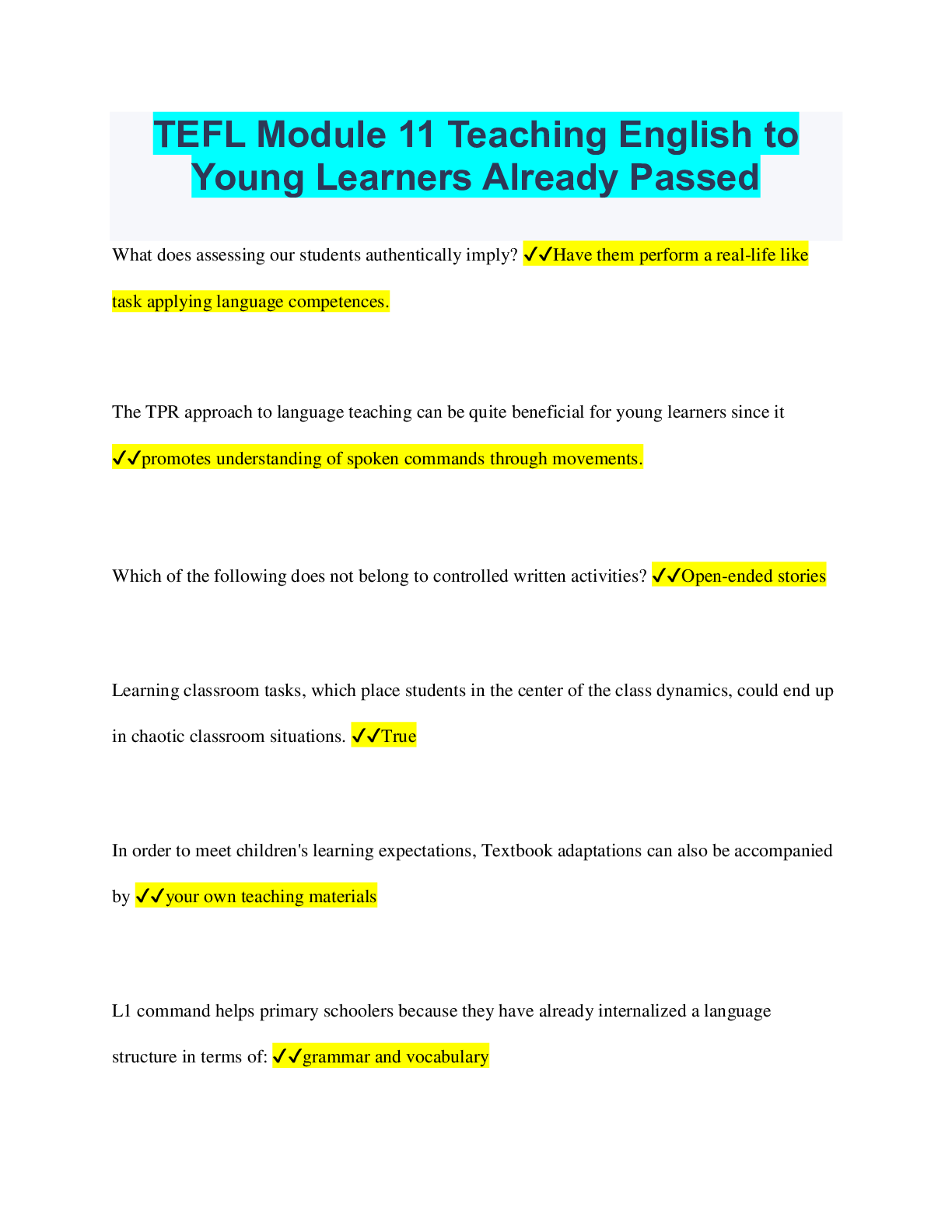
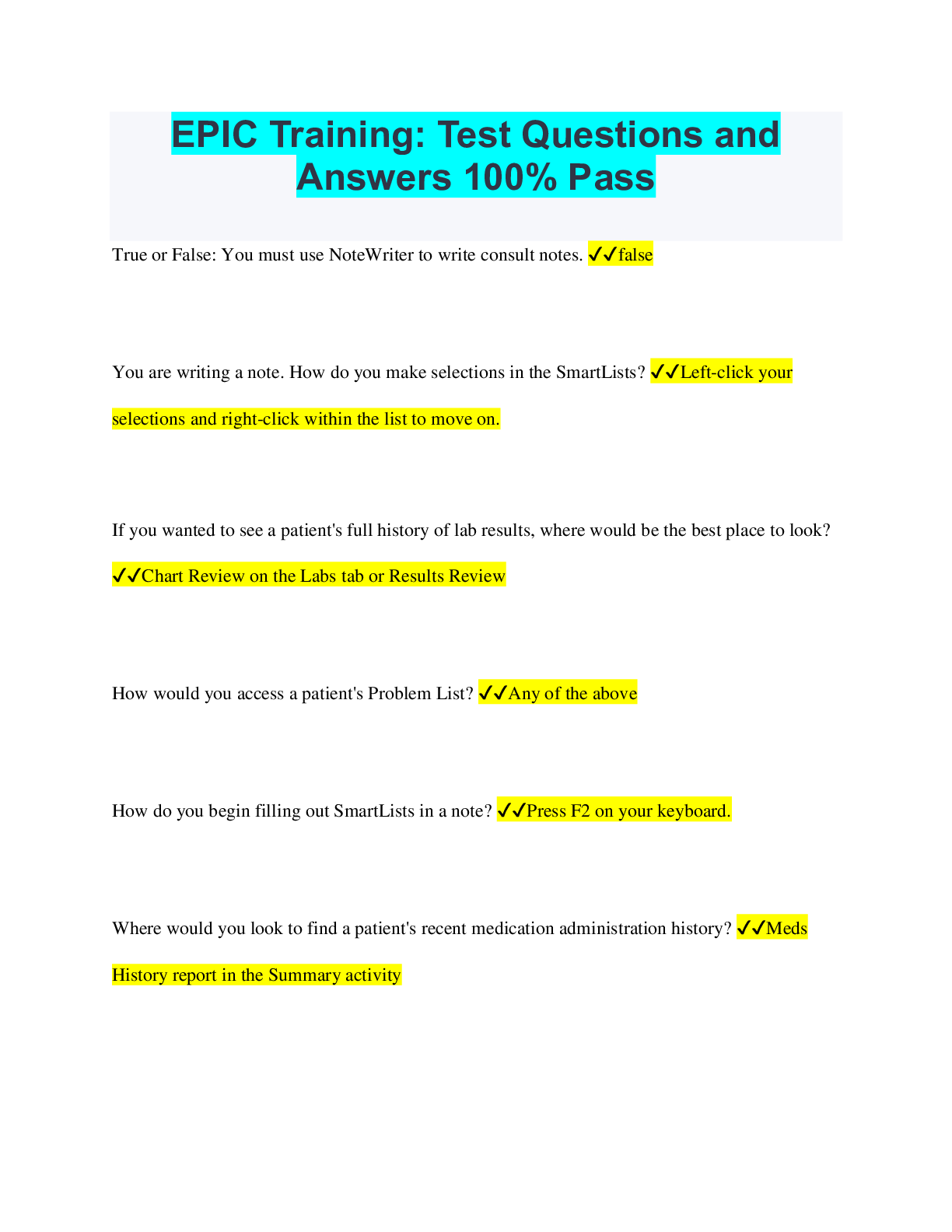
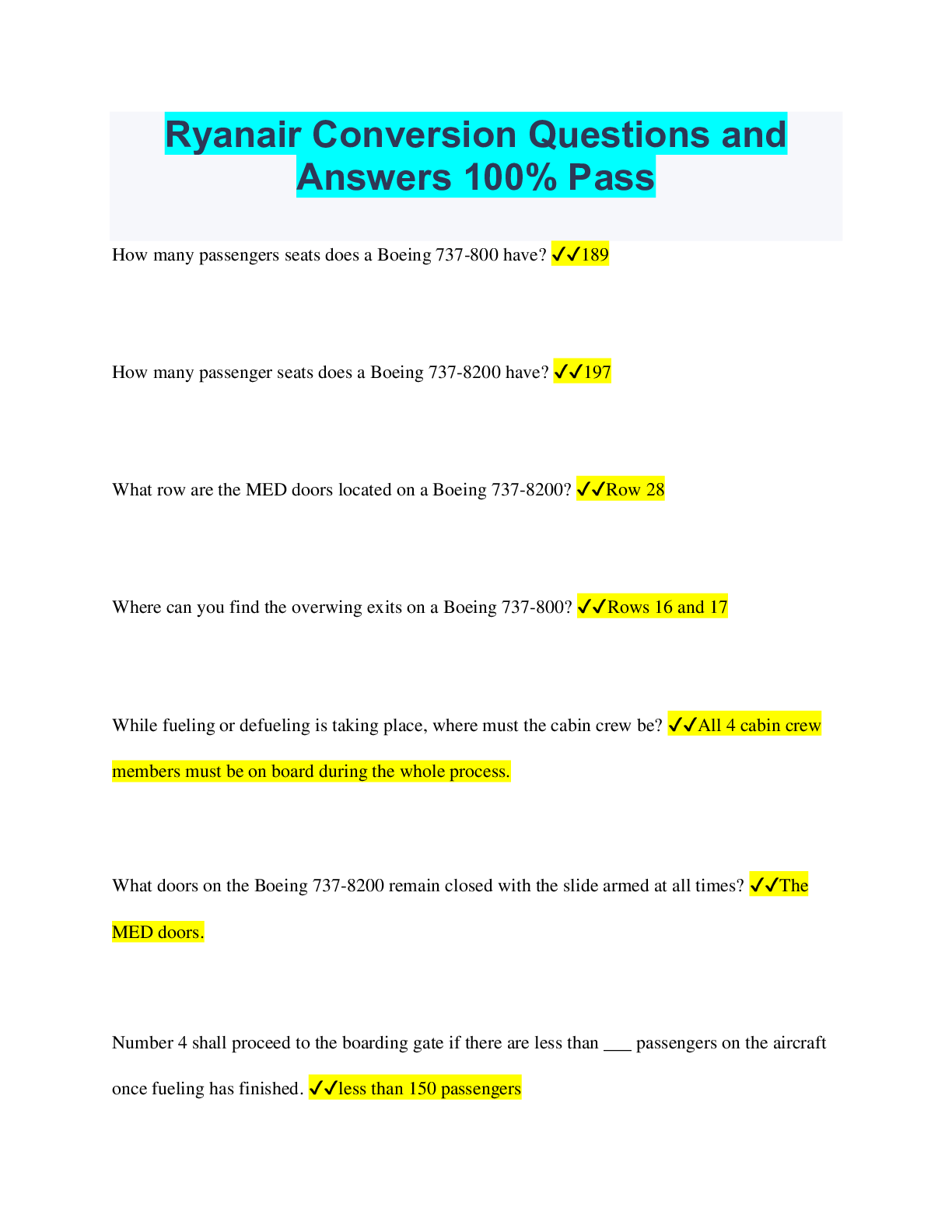
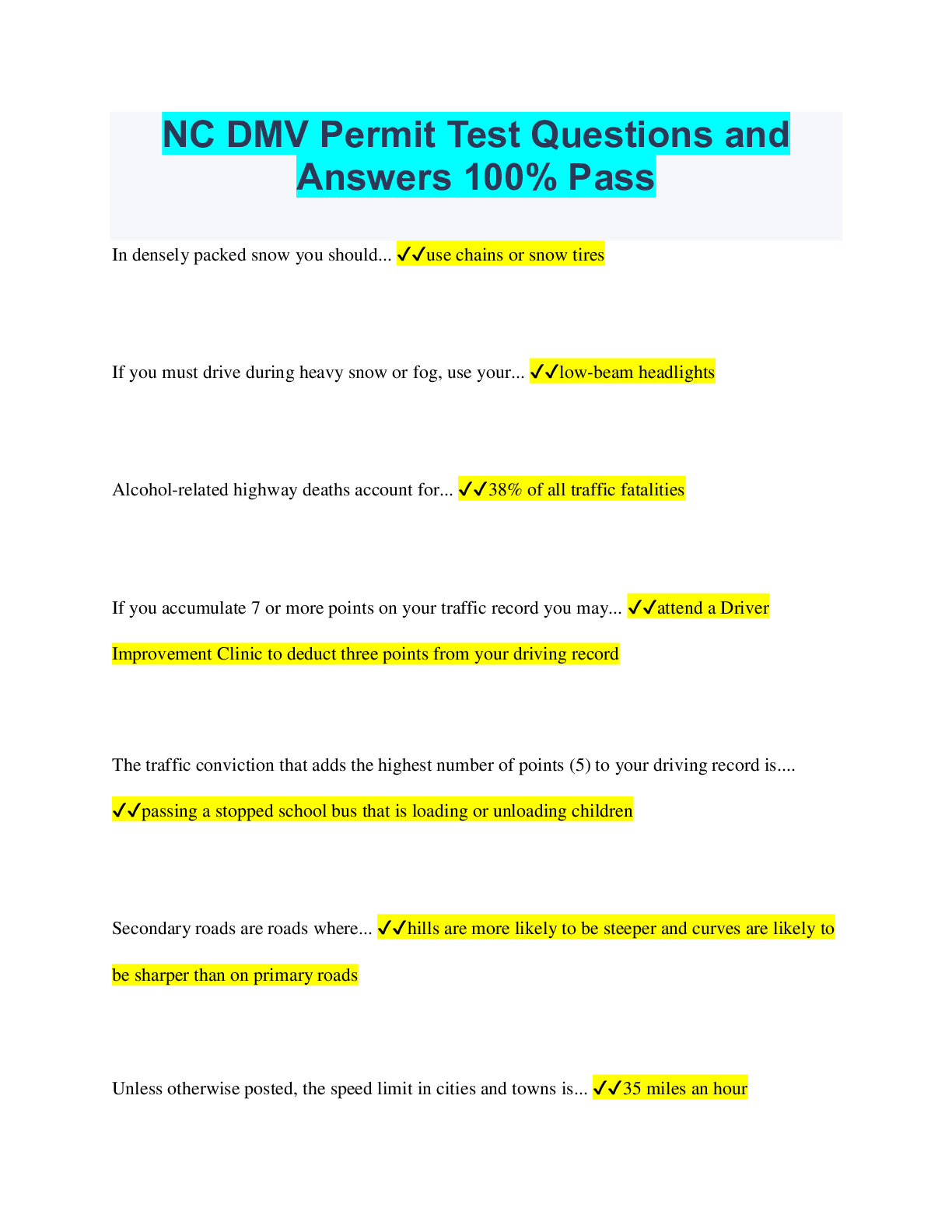
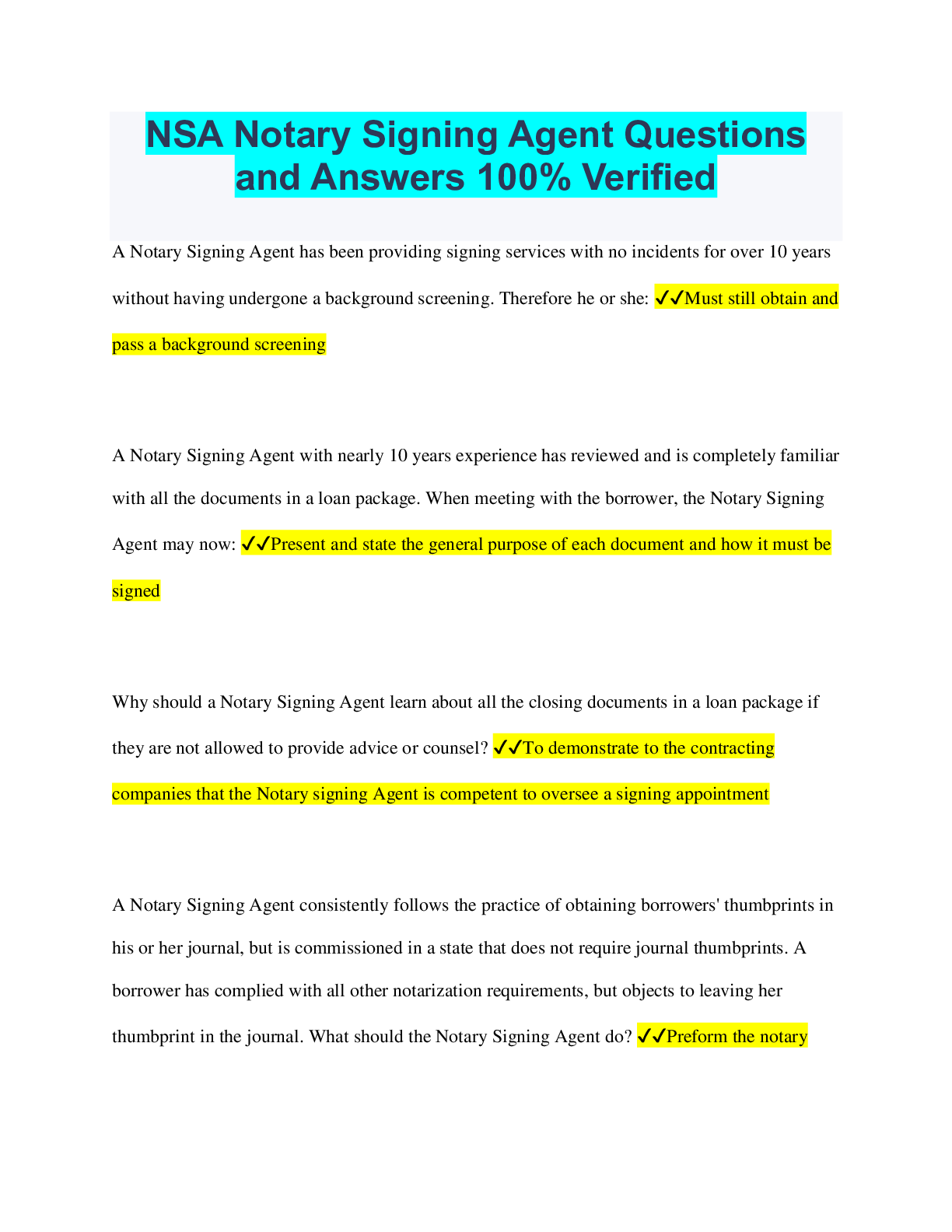
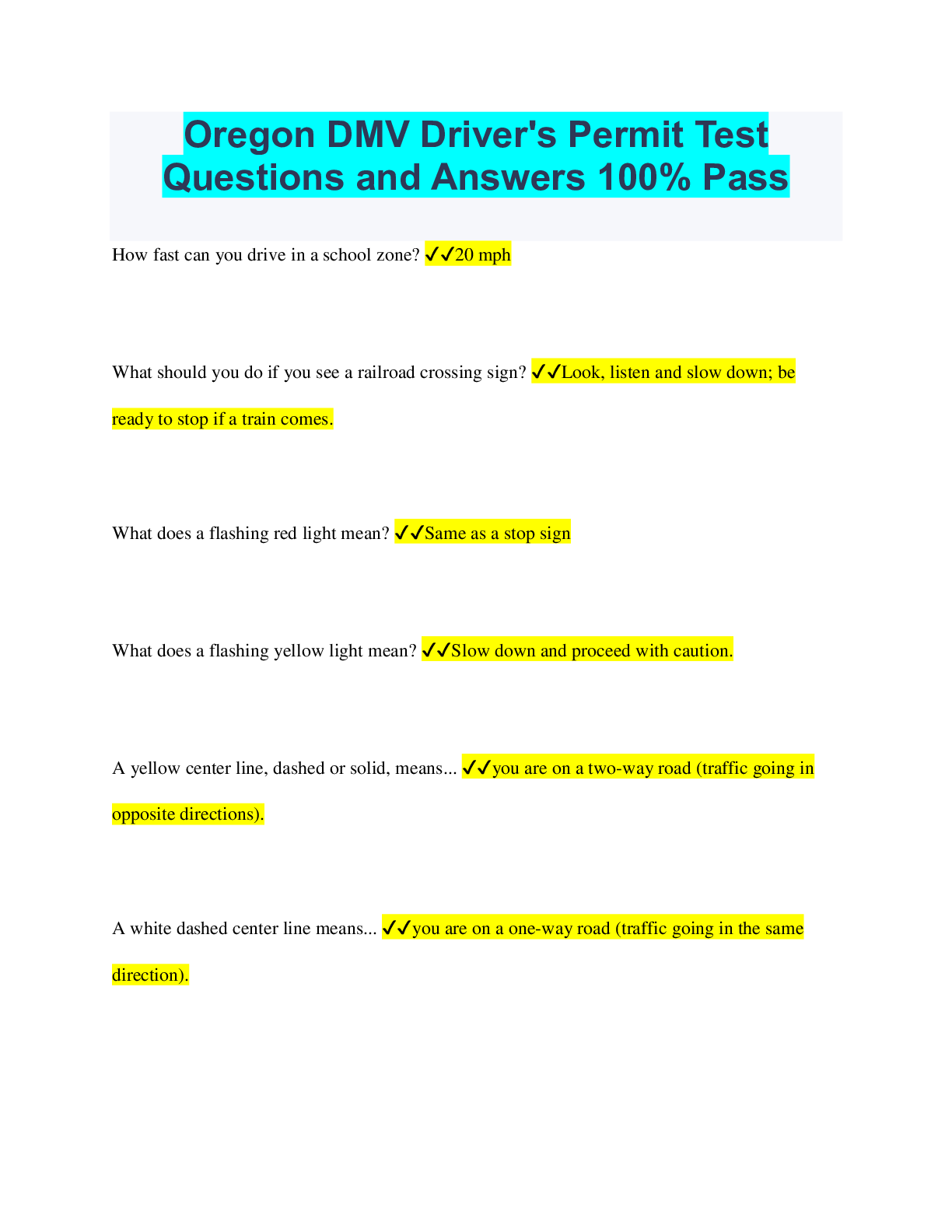
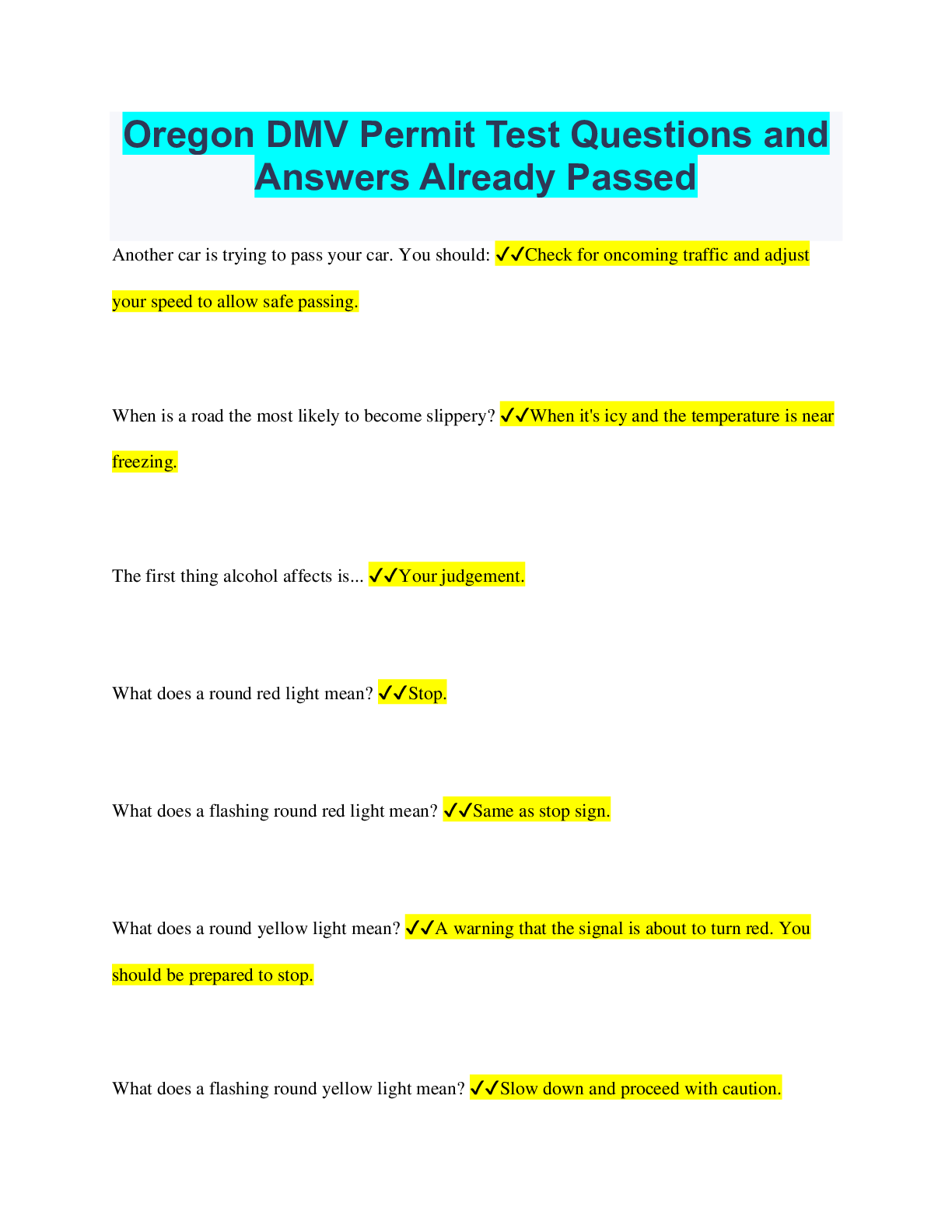
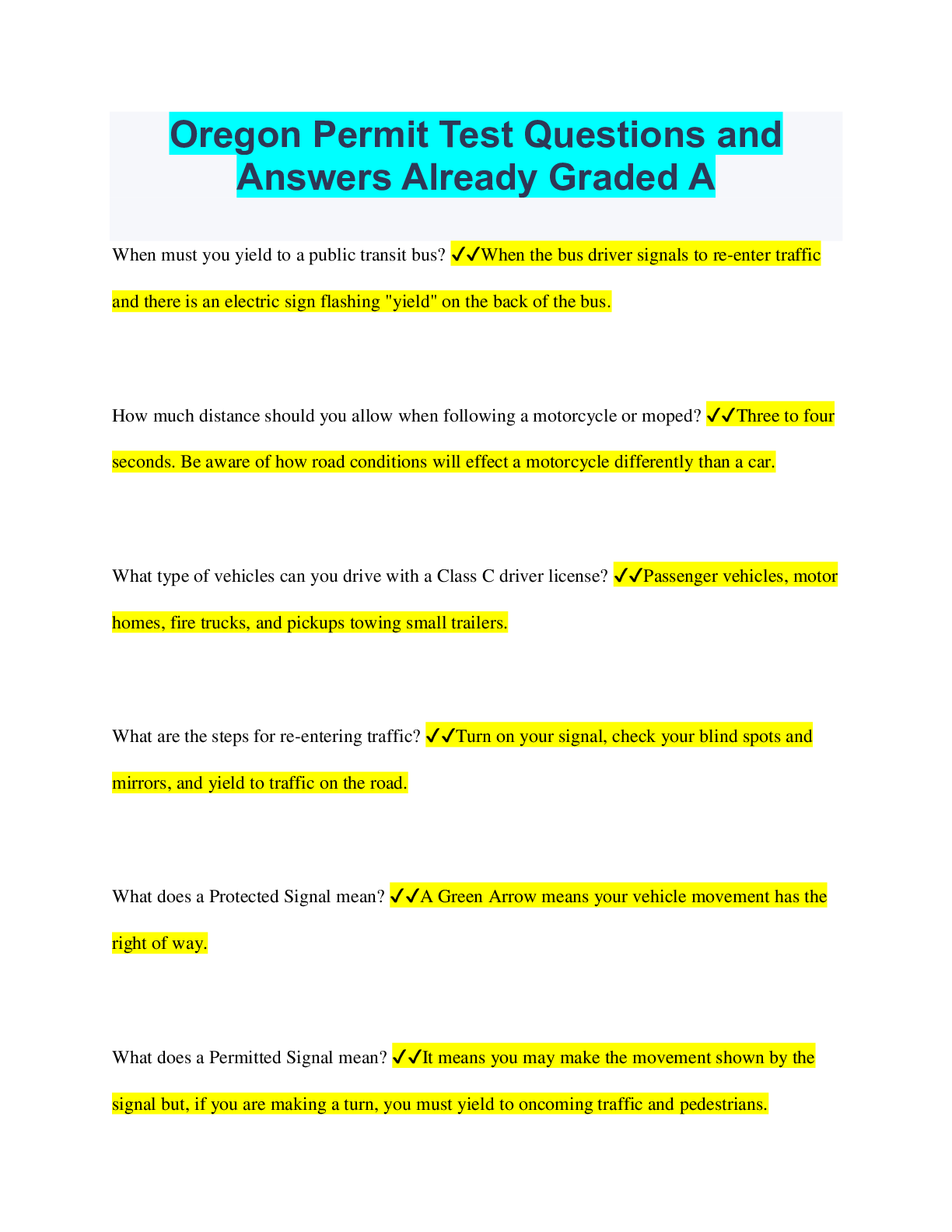
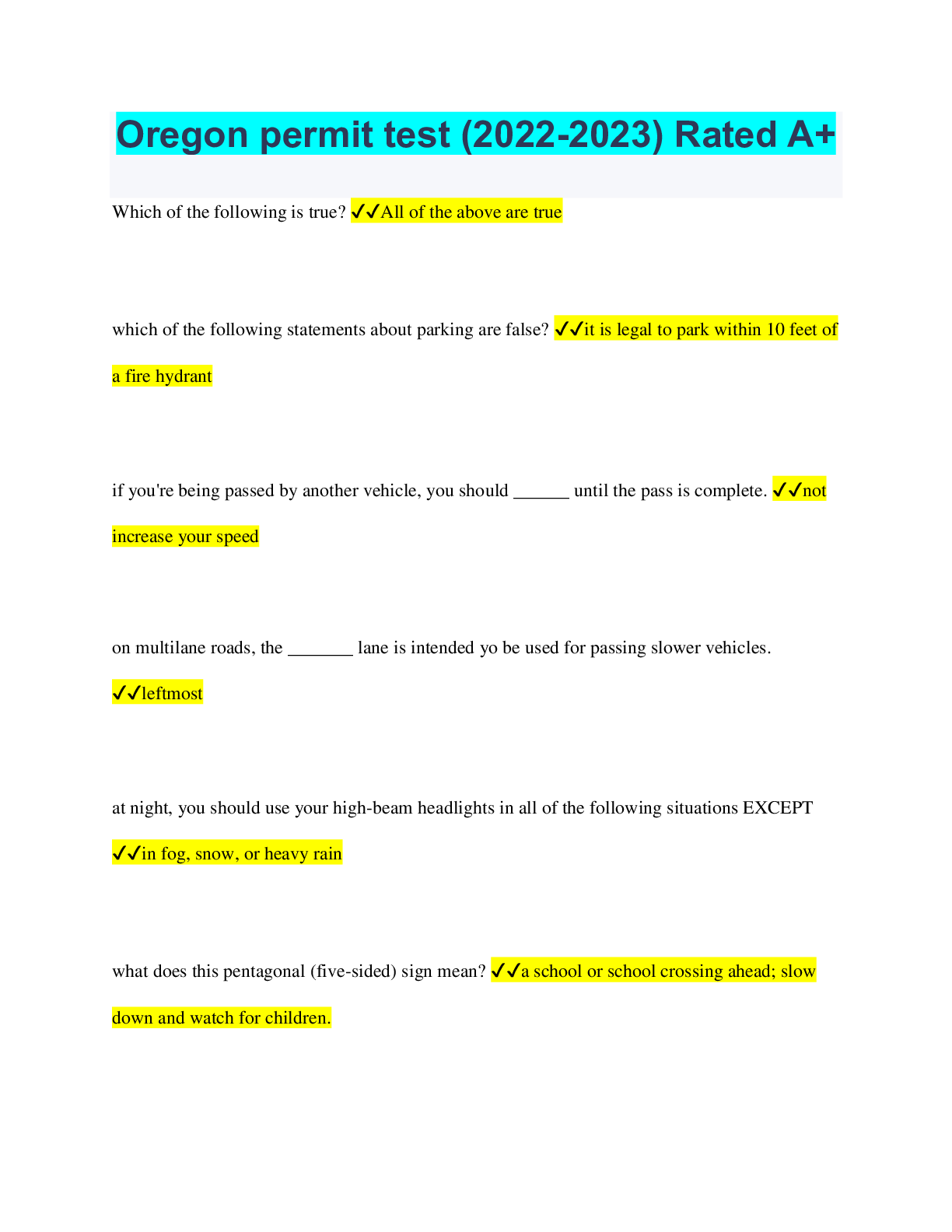
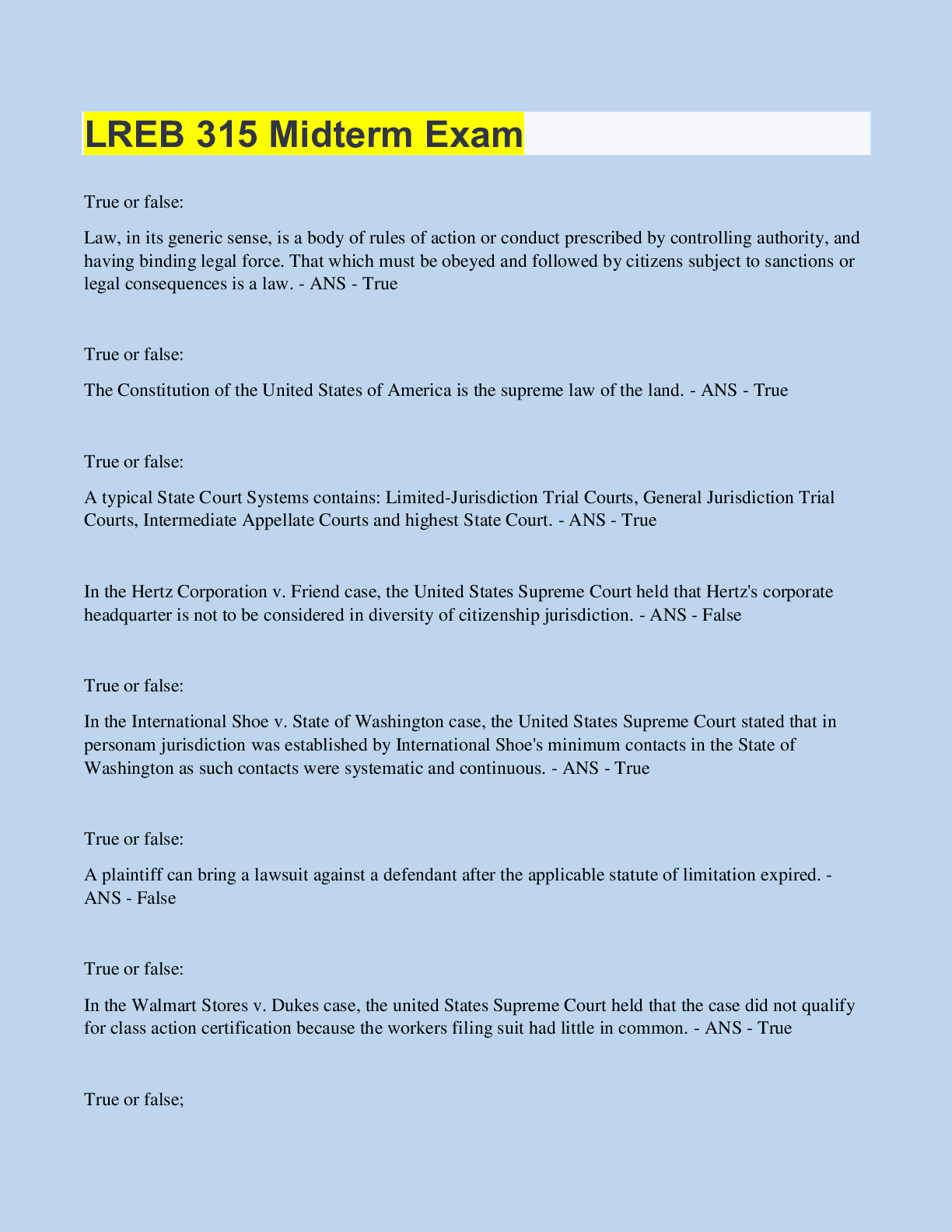
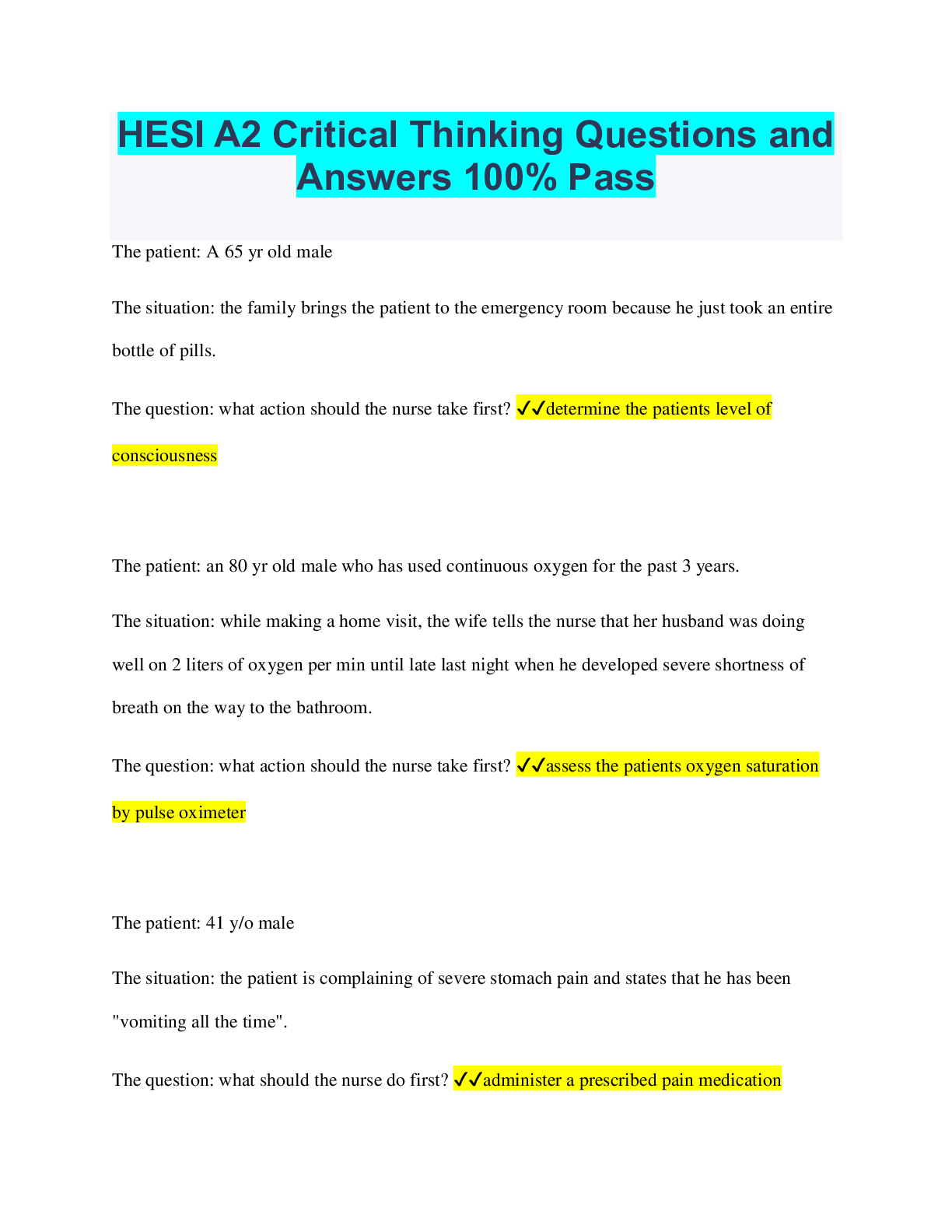
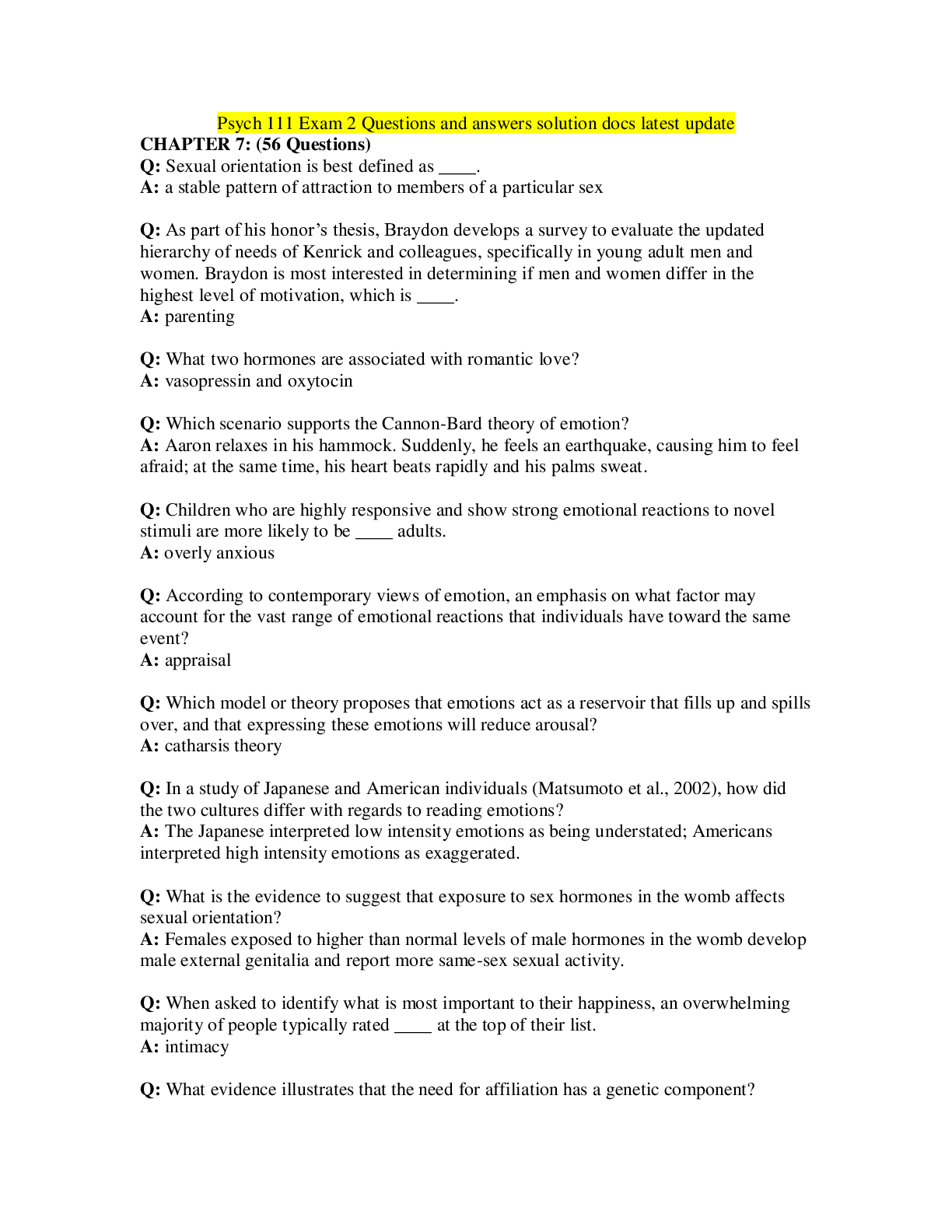

.png)
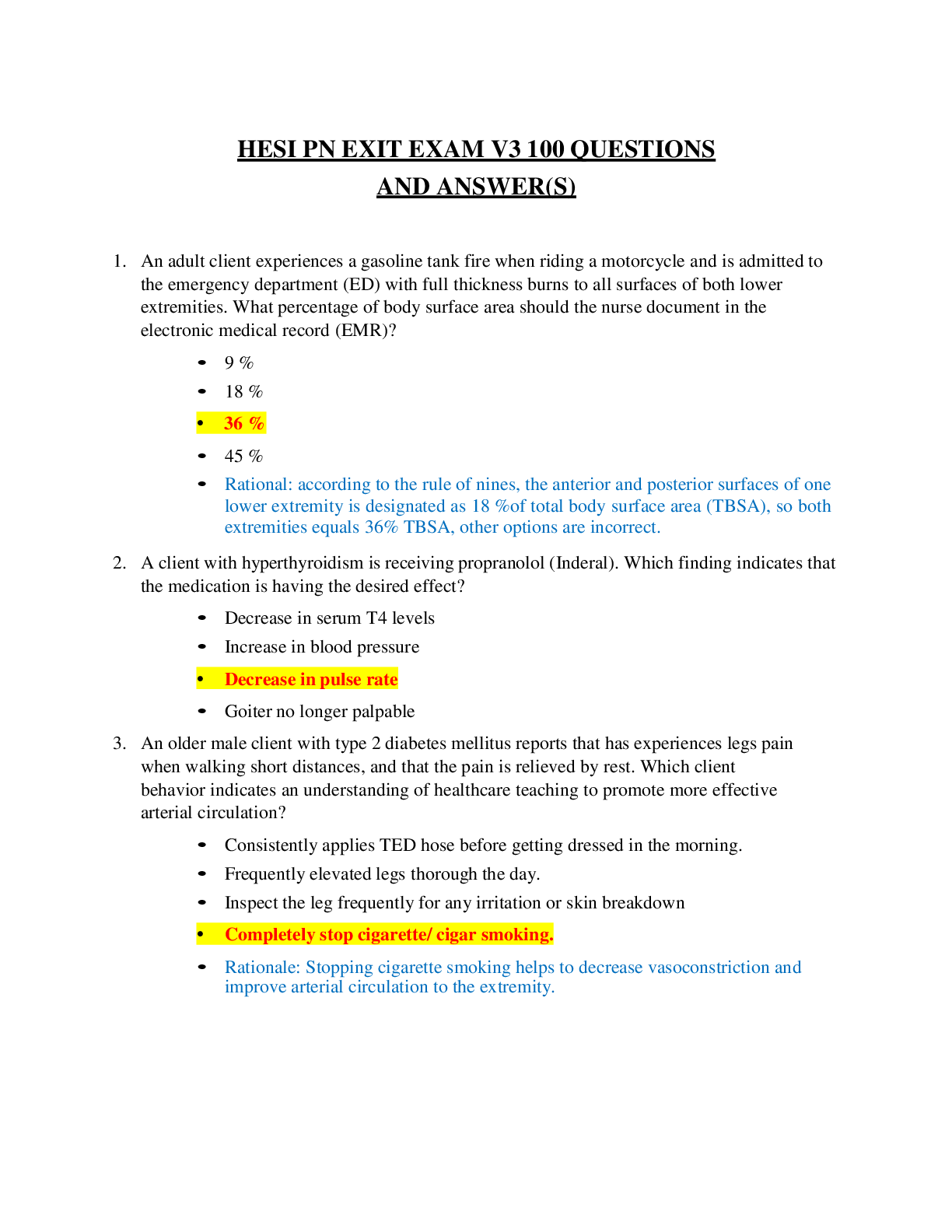


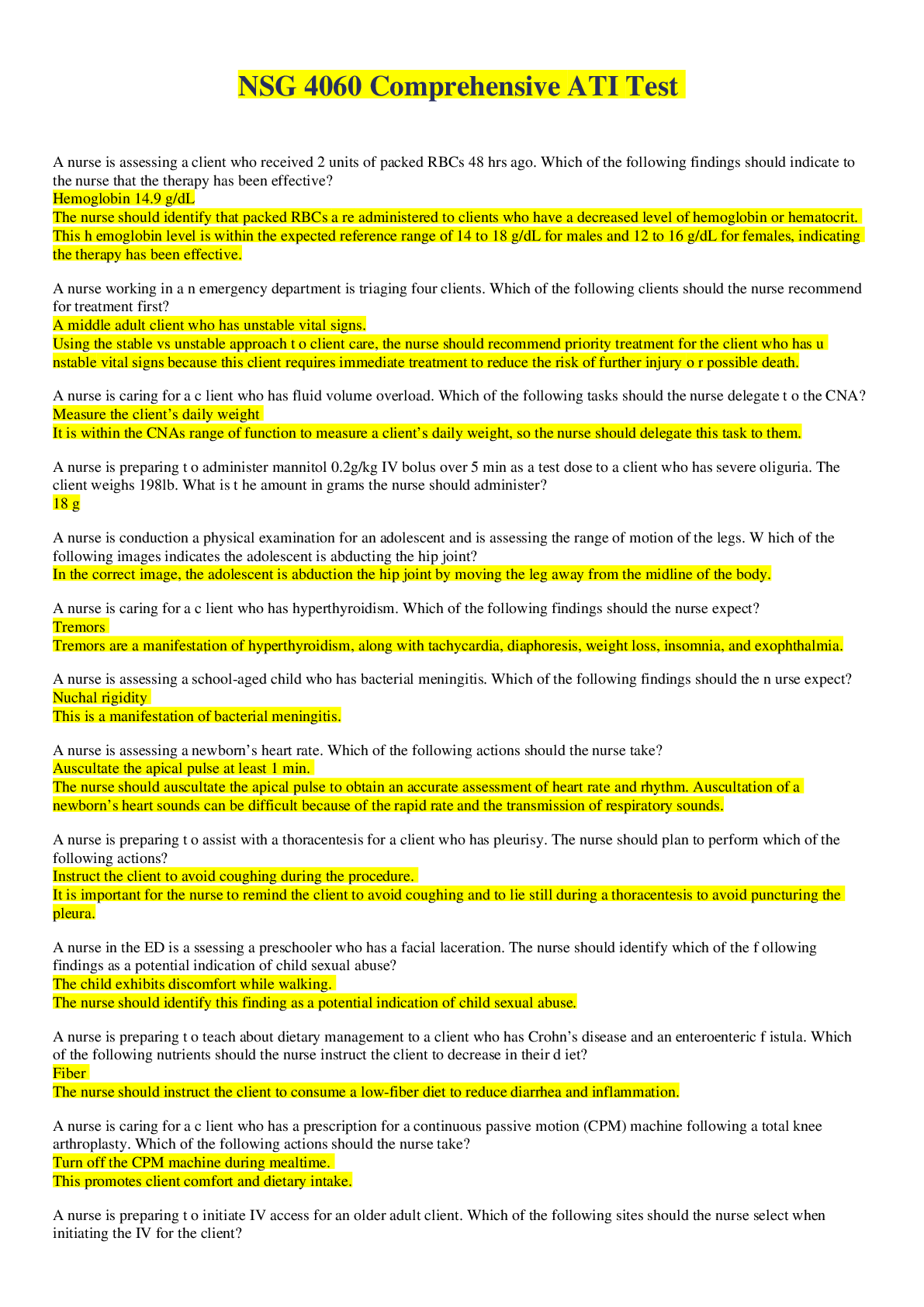

.png)
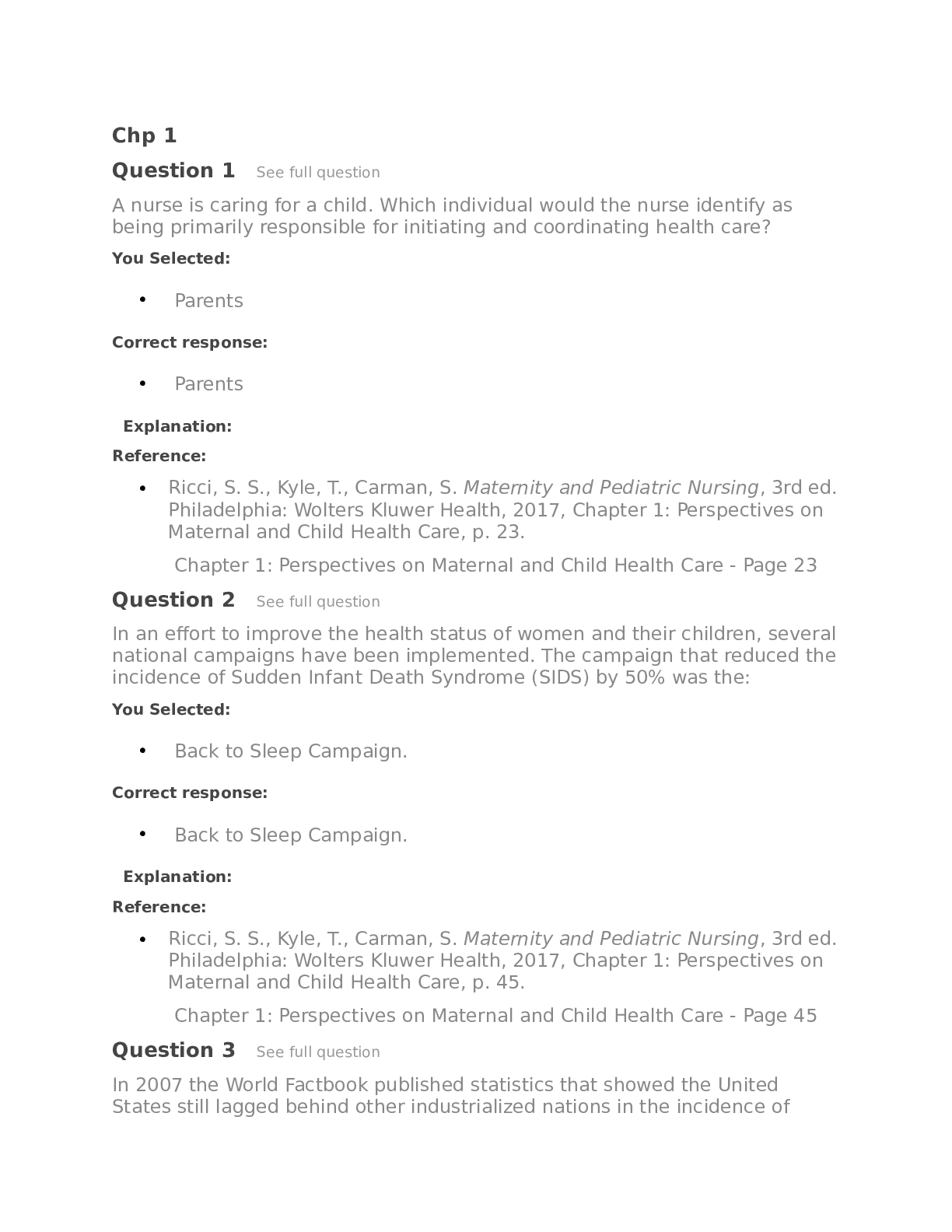
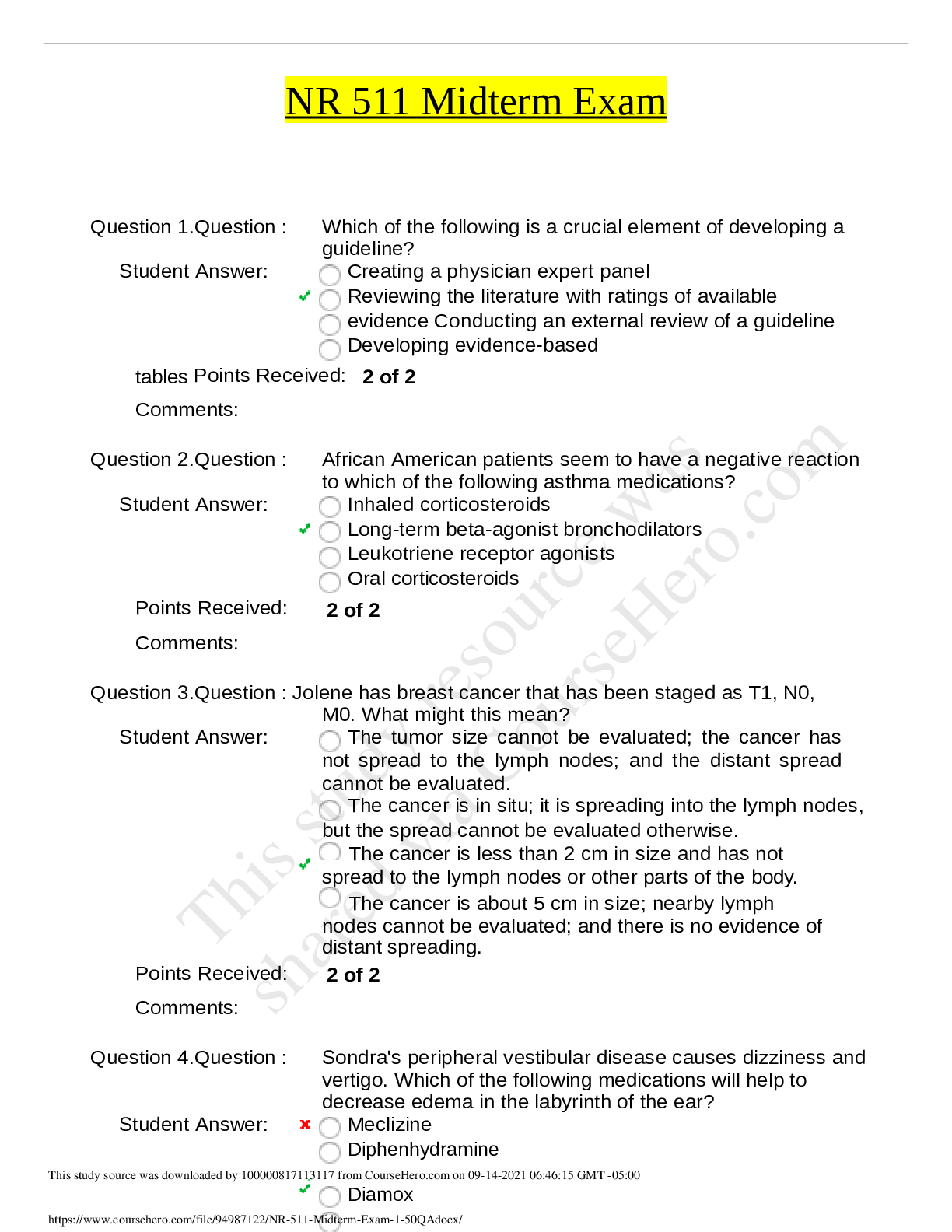
.png)

